2025
Impact Report
A chance for real change

Our Vision
We want to achieve a society in which everyone can fully meet their work and caring responsibilities, where all parents and carers have an equal opportunity to find and progress in secure, paid work.
To help us get there we will:
- Empower parents and carers to understand and use their workplace rights.
- Support employers to create and sustain flexible and family-friendly workplaces.
- Drive meaningful policy and legal changes to engender secure and flexible jobs as the norm, and advocate for a baseline of protection that delivers equality in the workplace.

Year one
5
year
strategy
We embarked on the first year of our five-year strategy with a renewed sense of purpose and resolve. Honing our focus, the strategy leads up to 50 years of Working Families.
Encouraged by how far we have come in supporting employers, empowering parents, and carers and influencing policy, we are moving steadily toward transformational change for parents and carers in the workplace.
Objective 1
We promised to…
Empower and inform more parents and carers to make use of their employment rights and entitlements to enter and stay in work.
Legal Advice Service
Providing free, legally-sound, specialist advice on employment rights and benefits, our Legal Advice Service serves the needs of parents and carers facing a huge range of predicaments.
Being free and online means our advice can reach corners of the country where parents and carers
would otherwise have nowhere else to turn. And, by continuing to seek long-term feedback from parents and carers, we know our advice is making a positive difference in their lives.
“I have successfully navigated a grievance at work and was able to keep my flexible working request. Working a four-day week offers stability for my family.”
- Nearly 2 million visits to our advice pages from over 1.6 million people.
- Advised almost 1,500 parents and carers over phone, email and social media.
This means we were able to help more than 1 in 10 working parents and carers in the UK.
“Your advice meant I could challenge my employer’s decisions. Referring to points from acts meant I sounded more professional and gave me a leg to stand on.”

- 100% of people phoning about benefits understood their entitlement better.
- Nearly half increased their household income.
- Our benefits advisers helped families access £90,000 of money they were entitled to.
“My flexible working arrangement has been approved, and I feel more secure in my job. This has also meant my child can attend nursery four days per week instead of five, which has given us more
financial security. I’ve kept my role and avoided a tribunal.”

Ongoing struggles
Research for National Work Life Week highlighted the persistent unequal access to flex, the struggles in managing work and childcare, and the benefits of flexible working for families and businesses.
- A third of parents have reduced their hours to manage childcare.
- Nearly a quarter rely on partners or other family members who have had to reduce their paid work or even quit their job.
- Over half of parents had not applied for a job they’d seen advertised as it didn’t offer flexibility in the advert.
- 73% said flexible working has led to increased loyalty to their current employer.
- 75% regularly work overtime, as 23% claim it’s the only way to manage their workload.
Powering up support for
new parents
Thanks to our targeted outreach to those with the greatest need, 75% of our helpline users between October 2024 and March 2025 fell into our “Least Access to Justice” category.
Who uses our helpline?
- Almost 1 in 5 (19%) were single parents.
- Almost 1 in 5 (18%) were from marginalised communities.
- Almost 1 in 5 (17%) were living with a disability or long-term health condition.
- 26% of helpline clients and 43% of website visitors were in relative poverty.
- Two thirds of helpline clients and three quarters of website visitors were earning below the Minimum Income Standards.
Positive Outcomes
As we continue to build a richer understanding of what happens next after receiving our advice, parents and carers continue to tell us our advice made them feel informed and empowered, and helped them to reach a resolution.

Immediately after accessing our advice:
- 98% (helpline) and 95% (website) of people felt better informed
- 95% (helpline) and 80% (website) of people felt empowered to act
- 9 in 10 people who answered the long-term survey said they had resolved their issue
- A quarter of those contacted 2-3 months later said their wellbeing had improved
- Almost 8 in 10 said our advice had resulted in better managing family and work and/or their financial situation
Amara’s Story
“For four years, I’ve worked for the same employer with flexible arrangements that allowed me to care for my neurodivergent daughter. As a single mother, I relied on my guaranteed fulltime weekday hours with fixed shifts to manage my caring responsibilities.
“When my daughter settled into her new SEN school, I asked my employer if I could go full-time. I had the option to buy our rented home – something I’d been working towards to provide stability and financial security – and the increased income would help with securing and affording a mortgage. My employer seemed supportive.”
“Shortly afterwards, I was asked to sign a contract variation which I thought reflected my request. I work on the railways, and when asked to attend the office, I found the environment intimidating. I’m also neurodivergent, which my employer knew, so trusting them and feeling under pressure, I signed what I thought formalised our discussion.
“A few days later, I realised I’d actually signed a zero-hours arrangement – no guaranteed hours, income or security. I felt extremely anxious. When I asked to revert to my previous contract, explaining this wasn’t what I’d asked for, my employer refused. I then raised a grievance which was also refused. I felt so stressed, panicking about how I’d provide for my disabled daughter or buy our home with no guaranteed income.”
“I looked for help, starting with my union, but my rep was unsupportive. I had a free half-hour with a solicitor, who told me to quit my job. Everywhere else, I was told I “didn’t meet the criteria” for free legal support, or had to pay – which was financially impossible for me.
“Through an online search, I found and contacted Working Families. An employment solicitor got back to me quickly, calling instead of emailing because I’d explained I’m neurodivergent and this was my communication preference. She was kind, friendly and reassuring.”
“She reviewed my work correspondence and explained how a work contract isn’t always confined to what’s written on paper. She helped me understand that the way I’d been treated potentially amounted to indirect sex discrimination and/or disability discrimination. I wanted to keep my job, so we planned to appeal the grievance decision.
“My adviser went above and beyond, putting together an appeal pack – I was blown away by the detail, yet it was written in a way I could understand. She’d drafted my appeal document and given detailed advice on handling the process. I immediately felt more informed and confident, knowing I had a clear path to follow.
“As the process progressed, my adviser was always available when I needed advice. After the appeal hearing, she drafted a follow-up letter covering points I hadn’t managed to express during the appeal. She was dependable, professional and emotionally reassuring during an incredibly stressful time.”
“From the beginning, I felt well supported. The lines of communication were always open and I never felt alone. My adviser was patient and compassionate, showing genuine empathy throughout.
“I honestly don’t know what I would have done without Working Families’ support; it’s been life-changing.”
Gemma’s Story
“I was two weeks away from returning from maternity leave when my employer said that, due to a restructure, my role was no longer needed. I was offered a role that was 70% similar but with more responsibilities and losing my managerial responsibilities. I believed that the decision made was against the law, but I wasn’t sure how to argue this or what my rights were, and what case I had to make sure I was properly compensated for losing my job.”
“It was incredibly stressful and outside of my husband I felt utterly alone. I was facing the reality of leaving a job I’d loved for 11 years and losing my income when I had two children to care for. My baby had already started nursery, and I didn’t know how I was going to pay for it. I was also incredibly angry at the change of leadership for putting me in this position. The last weeks of my maternity leave were very upsetting.”
“Having contacted Working Families, I was so grateful for the time spent on the phone. Just having someone to listen to was a big help. I didn’t feel rushed or hurried. At the time I was just calling whoever I could, I honestly had no idea of the quality of the advice at the time, but it ended up being 100% accurate and formed the basis of the case I put forward.
“Using the advice I was given, I negotiated with HR and ended up with double the amount I was originally offered as a settlement. Although I’m currently unemployed, I am at least able to keep supporting my family while I establish my own business.”
“Had I not contacted Working Families, I wouldn’t have been empowered by the information I received.
“I think the main thing for me was just finding someone to talk to and getting some advice on what to do next, and I got all that and more from Working Families.”
Objective 2
We promised to…
Support more employers to offer and promote flexible and family-friendly working practices and opportunities.
Family-friendly
workplaces of the future
The launch of our partnership venture, the Family Friendly Workplaces Certification, represents a major leap forward in empowering employers.
Endorsed by business leaders, charities and policymakers, the certification opens the door to meaningful progress and raises the bar for inclusive workplaces in the UK by recognising the good work of employers and providing direction to drive continuous improvement
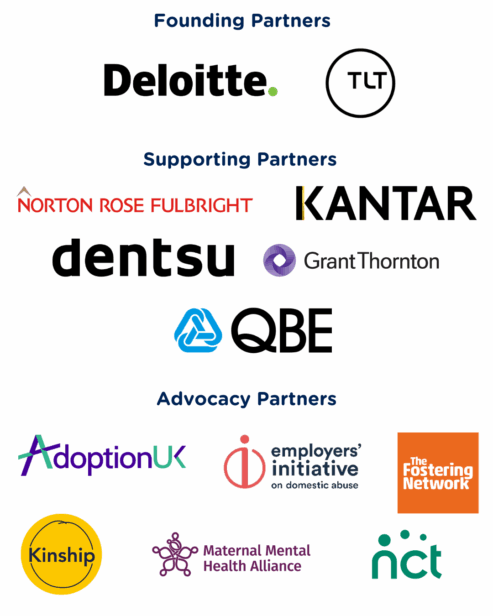

An in-person launch event, hosted by the BBC’s Sally Bundock, showcased speakers from dentsu, TLT LLP, and Deloitte, as well as the former chief executive of ACAS, Susan Clews, and our ambassador Charlie Beswick.
The Minister for Employment Rights, Justin Madders MP, lent his support and acknowledged that normalising flexible working is key to raising living standards and growing the economy.
“Flexible, supportive workplaces represent the future of our modern economy. Employers benefit from a wide range of expertise and a diverse workforce, while individuals are empowered to progress their careers without sacrificing their family lives.”

Justin Madders
Minister for Employment Rights
To launch the certification, we…
- Hosted an online event with over 360 registered attendees.
- Produced a business case for flexible working.
- Attracted national press coverage, featuring in The Times and The Sun.
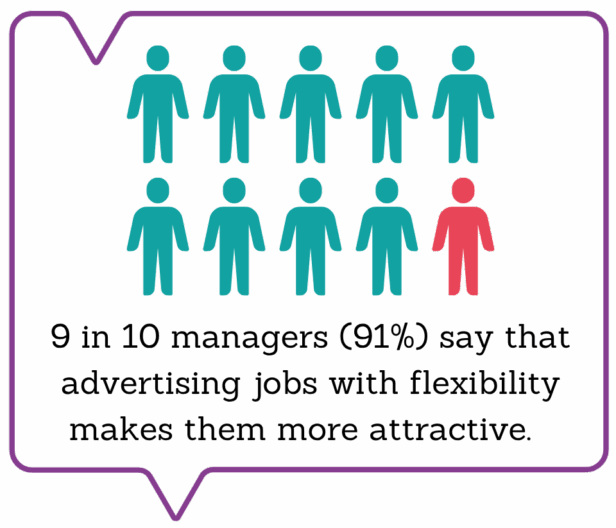
“Having the right research and evidence behind creating a framework, making it simple for employers to get involved in, and providing moments of education to explain the business case is critical.”
Emma Walsh, Founder of Family Friendly Workplaces

Business case for flexible working
Making the case for flexible and family-friendly working is key to bringing people at every level on board. The certification pioneers an evidence-led framework in a sphere where data has been lacking. A factsheet, featuring the latest research and employer insights supports employers to make strategically sound decisions.
Employer Membership
- 120 members of all sizes from a range of industries.
- 800,000 employees represented.
- 57 policy reviews on areas such as carers, shared parental leave and flexible working.
- 14 events reaching almost 800 people
- 12 lunch and learns
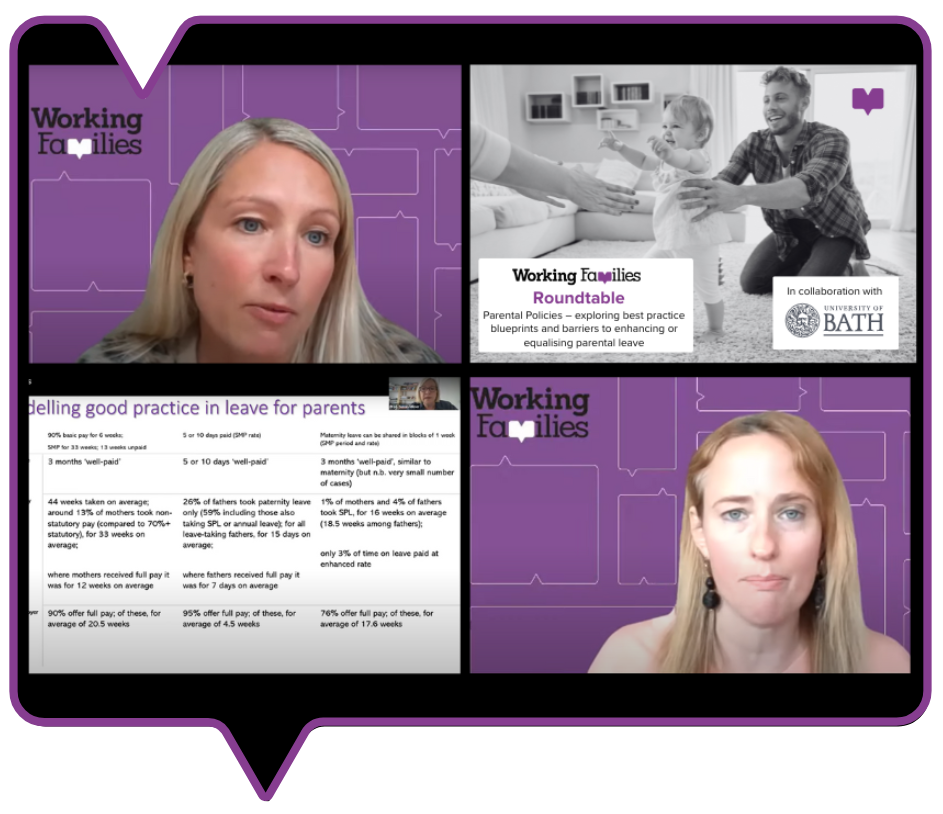

Trusted guides
Knowledgeable, practical and solution-focused, our team of Relationship Managers have empowered employers to confidently navigate the implementation and enhancement of family-friendly working through benchmarking, policy reviews, and lunch and learns.
“Working with Donna and Working Families has been really valuable – following a review of some of our existing family policies she shared with us some clear, detailed insights on what we could do to improve these, which we’re currently incorporating into our next policy review.”
Jane Smith, Inclusion and Wellbeing Partner, IOP Publishing
“On a day-to-day basis, they [Working Families] signpost general support and
resources in order to ensure we are well informed – we have greatly benefited from
the wisdom shared.”
Lizzie Morris, Senior Manager – Culture, Engagement & Wellbeing, KPMG Impact
“The lunch and learn sessions have been a tremendous asset. These sessions have
offered real value to our Parents and Carers Colleagues Resource Group, they have not
only provided practical advice and support but have also fostered a sense of community
and shared learning among our colleagues.”
Vicki Skelton, DEI Manager, DRAX

Supporting SMEs
In partnership with the University of Manchester, our research-led report detailed the opportunities and challenges that face SMEs, which account for 6 in 10 private sector businesses. The report provided valuable insight and a practical resource for those wishing to implement practices that work for the business and employees.
- Despite often having more limited financial resources, SMEs can offer a more holistic approach to potential employees.
- The flatter hierarchal structure lends itself to a more family-feel which can meet a diversity of need.
- Frameworks rather than policies offer more fluidity to tailor individual flexible solutions, but may deter those looking for a more formalised approach.
Objective 3
We promised to…
Work with policymakers to legislate and act to create a policy framework that provides a baseline of rights and entitlements for working parents and carers.
Significant steps forward
The year began with legislation coming into effect that we had worked hard to bring to fruition. The Employment Relations (Flexible Working) Act 2023 will make it easier for those who need flex to access it, and the Carer’s Leave Act 2023 means carers have the legal right to one week’s unpaid leave a year for the first time.
The then-Prime Minster Rishi Sunak announced the introduction of additional childcare hours for children between 9 months and 3 years old, that met a campaigning objective of Working Families and the Early Education and Childcare Coalition.
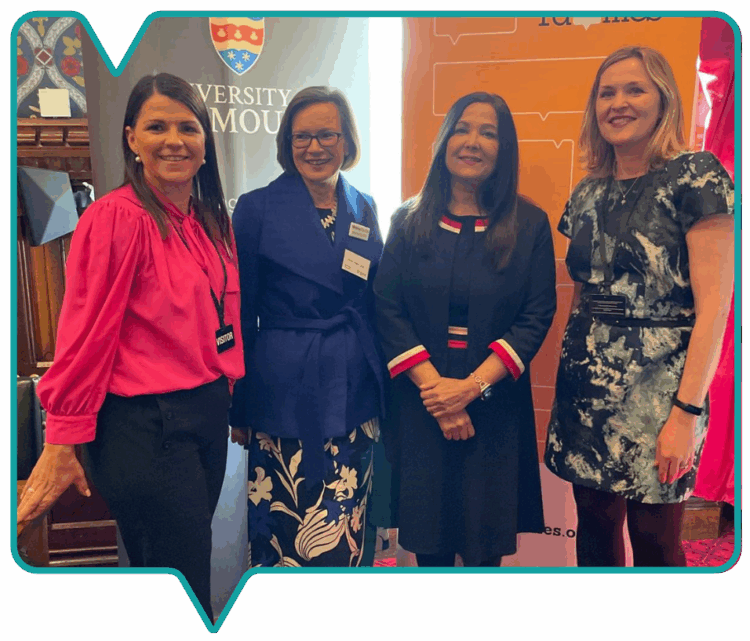
To mark the new legislation, Working Families came together at a Parliamentary event with Yasmin Qureshi MP, who had initiated the flexible working bill, alongside research partner Dr Jasmine Kelland and the Chartered Institute of Personnel and Development. The event celebrated how much had been achieved and the priorities for future progress.
A year of elections
The unexpected timing of the General Election prompted a letter to party leaders from the coalition of charities, think tanks and campaign groups that form the Families and Work Group, urging the next government to commit to taking action and working cross-party to deliver change.
A manifesto for London Mayoral elections detailed a vision for the capital as a family-friendly city where everyone has access to justice, local government pioneers flexible working and London workers can afford to take parental leave.
Our ‘Breaking down Barriers’ manifesto, set out five policy priorities that we would practically work towards with any future government:
- Parental leave should be reformed so that it is more accessible.
- All parents have access to affordable and quality early years childcare.
- All job roles are designed with flexibility in mind.
- The social welfare system supports parents and carers in times of need.
- The legal framework and justice system recognises parent and carer needs and upholds rights and entitlements.
Building foundations
Re-establishing the All-Party Parliamentary Group following dissolution for the General Election meant finding and forming relationships with supportive Parliamentarians, including new MPs such as Sarah Russell MP and Baroness Penn.
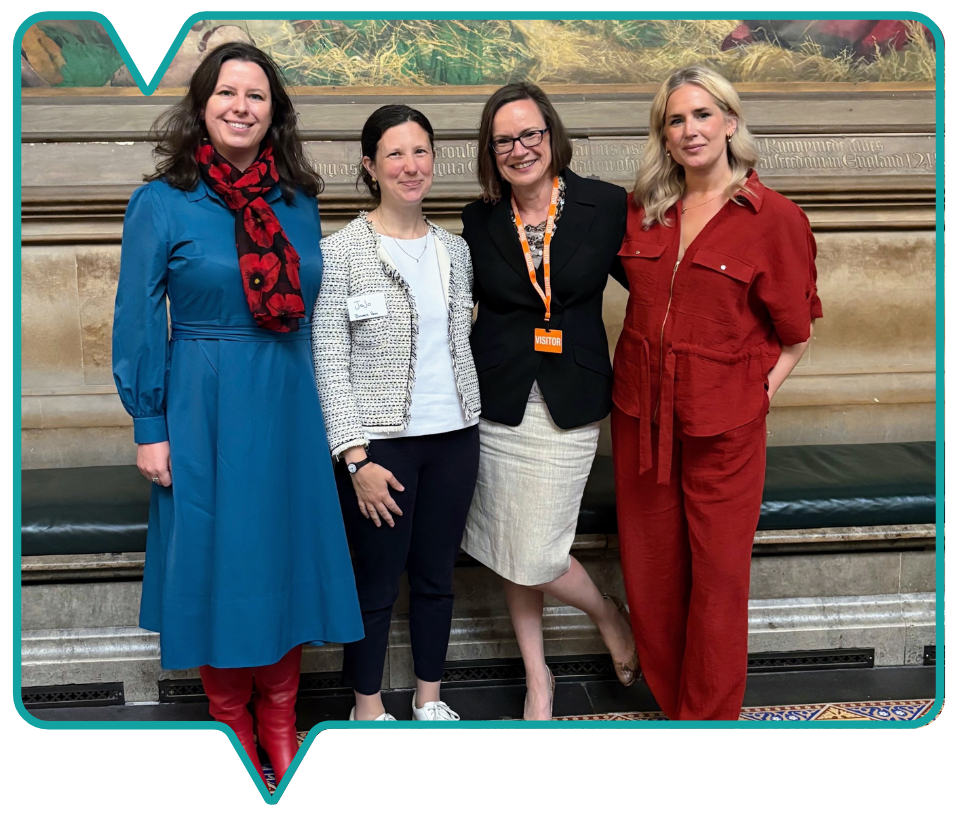
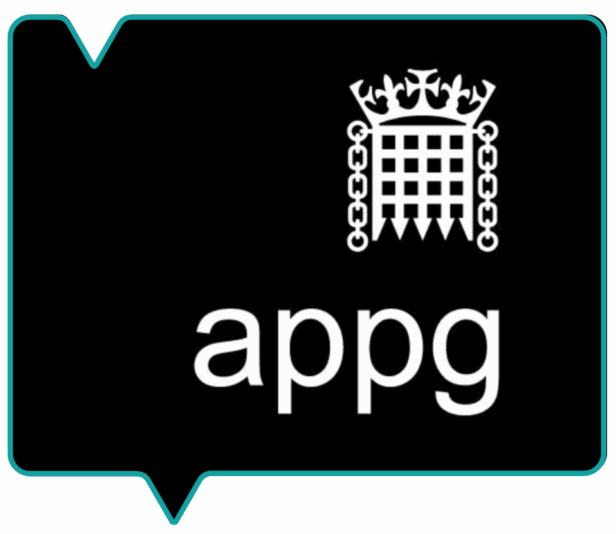
With a new government came a new set of staff, and meeting with department officials from Department of Business and Trade, Department of Work and Pensions and Department for Education, as well as the cabinet office and the Employment and Education Ministers.
A voice in the room
Having expert knowledge and unique insights have led to significant engagement with policymakers and many opportunities to contribute in the shape of:
- Developing the Government’s Child Poverty Strategy.
- Providing evidence to the Home-Based Working Committee and Women’s Equality Commission enquiry into Equality at Work.
- Joining the Dad Shift’s advisory board.
- Speaking at Dad Shift’s Parliamentary Action.
- Inputting into policy design for Scottish Government.

Amplifying Our Voice
Press coverage
- 272 pieces of coverage across 186 outlets, including The Independent, The Times, The Telegraph, The Daily Mail, This Morning online, Cosmo, BBC Radio and The Guardian
- Reach of 2 billion (based on press viewings)
Social media
- Over 3,600 new followers on Instagram and 1,500 on LinkedIn
- Reaching over 300,000 on our Instagram and LinkedIn pages
- Over 100% increase on visits and interactions on our Instagram page)
Insightful content
- Guardian Money Hacks – Eight ways to get your finances ready for having a baby in the UK
- Adoption UK – Flexible working: your flex rights and how to ask for it
- Stylist – How to improve employee mental health
Podcasts
- Interviewed for Netmums and CEO Mum podcasts
- The Leadership Enigma – Flexible working and policy reform

Patrons
We welcomed a new Patron Denise Wilson OBE, long-term champion for gender equality, and Vice Patron Una O’Reilly, expert in people leadership, who are using their high profiles and expertise to further our mission.


Ambassadors
Our ambassadors demonstrated their power to drive conversation and boost brand awareness, including new recruits Becca Maberly and Charlie Beswick creating collaborative content that generated the highest volume of comments and engagement.


- 6 out of 10 top-reaching posts included our long-term ambassador Anna Whitehouse and new ambassador Charlie Beswick.
- Thanks to the weight she carries in the sphere, Anna Whitehouse was able to facilitate a donation of £28,866 from Invesco that went towards funding the helpline.
- Elliott Rae raised the profile of Working Families on BBC 2’s Politics Live in a debate on paternity leave and has provided supportive quotes to promote our research.
Download the full report
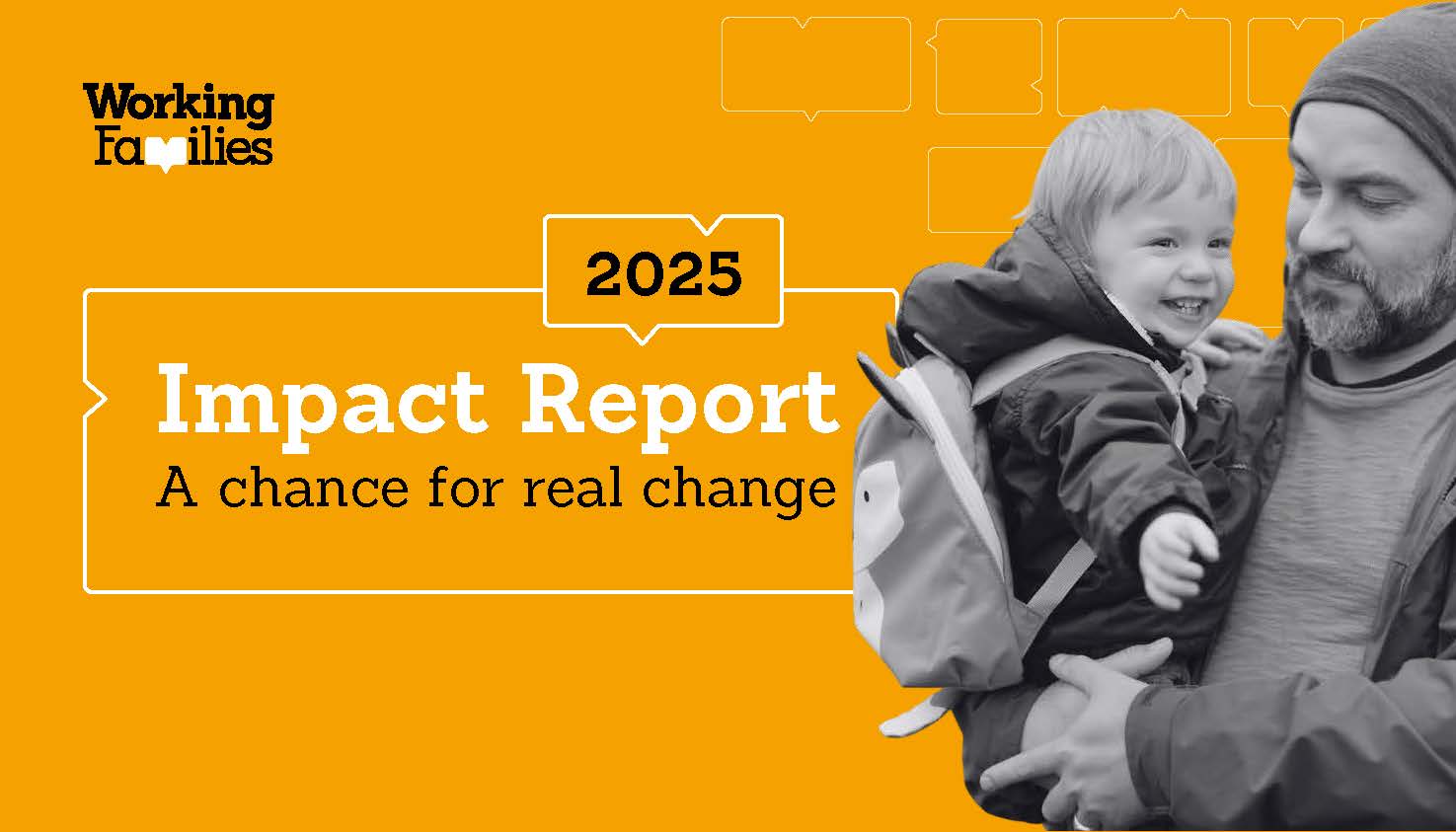
We would be incredibly grateful if you would consider making a donation. Every penny raised enables Working Families to meet the increasing demand for our services during these challenging times. With your help, we can continue to empower parents and carers with our free Legal Advice Service, a lifeline for many. Thank you.